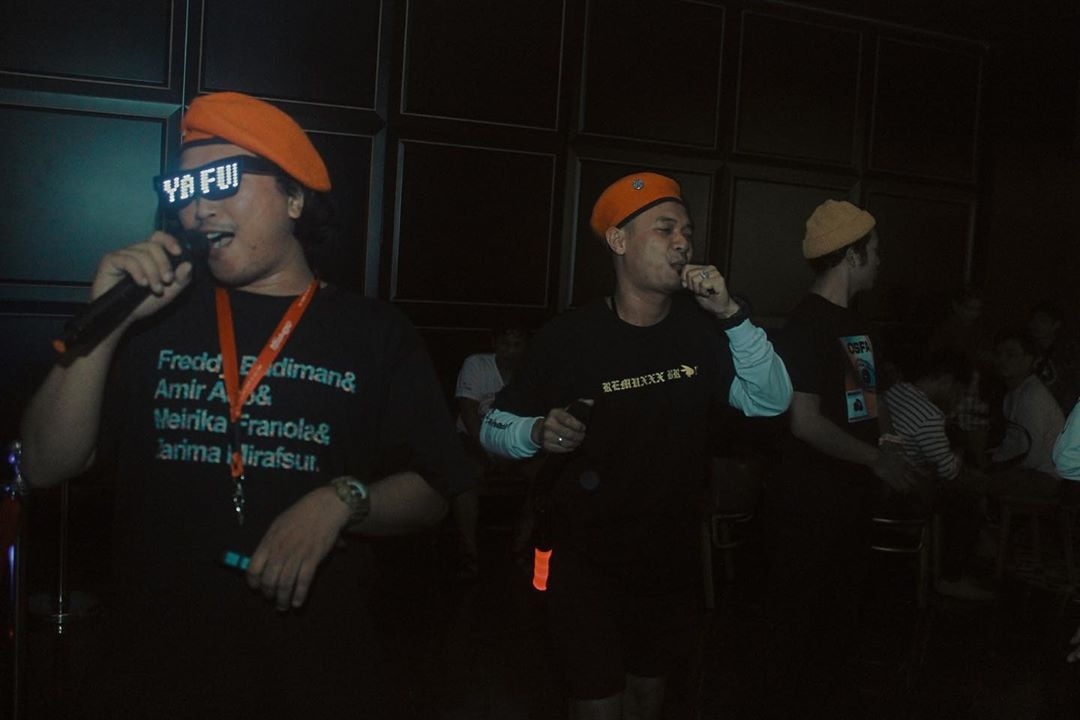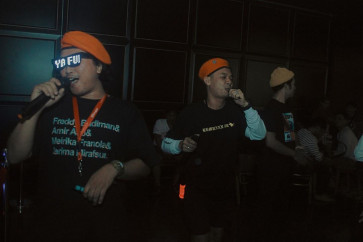Popular Reads
Top Results
Can't find what you're looking for?
View all search resultsPopular Reads
Top Results
Can't find what you're looking for?
View all search resultsHow a dance genre considered corny crossed boundaries
Once known as dance music for poor Indonesians, Funktot is gaining popularity in the mainstream
Change text size
Gift Premium Articles
to Anyone
O
n a night bus ride many moons ago, my sleep was interrupted by the driver blaring his playlist of pop hits remixed in a style known as funkot. Tired and defeated, I resigned myself to the fact that I would not get another wink of sleep for the whole ride as the hard-hitting beats endlessly blasted their way inside my head. Somehow though, I did not mind.
Funkot—short for funky kota or city funk—is a hardcore mashup of electronic and house music with dangdut sensibilities. Characterized by its high tempo and pitch, breaks and kicks, funkot captures the chaos of the city outskirts that birthed it. Even though it may be stereotyped as "cheap" music, funkot's popularity somehow crosses all social and economic boundaries, even if some will not admit to enjoying it. Its mixes today rake in upward of 5.5 million views on YouTube. Search up "funkot mix" on e-commerce platforms and you will find thousands of physical releases, from CDs and DVDs to USB drives. The content ranges from song compilations to raw audio materials for aspiring producers.
Funky since the 90s
Funkot isn't new. For its origins, people often point to figures such as the band Barakatak or DJ Jockie Saputra in the early 1990s. In a conversation with producer Ronny Load from Barakatak at his home, he expressed a hesitancy about being dubbed the genre's pioneer. "Back then, we used to call it 'ndendeg,' like the sound of the beats," said Ronny while vocalizing its sound.
"When I first got into the club scene, DJs like Jockie Saputra were already playing house music, but nobody produced it then," reminisced Ronny, now in his 50s. He saw this as an opening and started to self-produce house tracks, which were turned down by various record labels until a break with one that underwent a recent management change.
"The new guys in charge accepted my demo right away. Their only request was to add vocals to the songs to make them more commercial—which was very new at the time," said Ronny.
Before funkot, Barakatak was a Sundanese pop group.



















